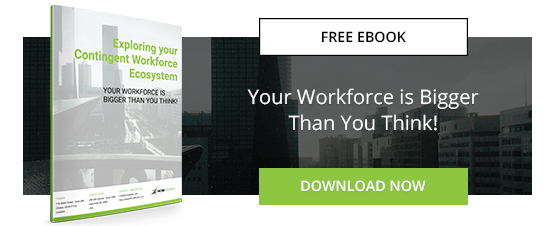The government is cracking down on employee misclassification. If you don’t understand the differences between employees and independent contractors and make errors during classification for tax purposes, you can get hit with huge fines, fees, and penalties that can significantly hurt, or even shut down, your business. As an employer, it’s your responsibility to ensure your employees and contractors are properly classified on tax forms.
Misclassification of workers as contractors is a trend that’s been increasing steadily in almost all industries, and federal officials are targeting more and more companies with audits and lawsuits. Recently, huge corporations such as FedEx and Uber have had federal lawsuits filed against them due to worker misclassification. If you want to avoid being added to this list, it’s important to fully understand everything there is for you to know on the subject. So keep reading.
Why Employers Misclassify Employees
Some employers misclassify employees as independent contractors simply because they do not understand the difference. However, others do so for financial gain. Independent contractors aren’t compensated equally as employees. Companies can save considerably on contractors when they don’t have to pay a fixed salary, health and dental benefits, RSPs, unemployment insurance, taxes, overtime, or expenses. To some, it’s worth the risk of misclassifying as it saves them millions each year if they aren’t caught.
Who Are Independent Contractors?
To avoid unintentional misclassification, the Department of Labor (DOL) has issued an Administrator’s Interpretation of who exactly is considered an independent contractor in order to offer guidance to companies. The goal of issuing this Interpretation is to promote the use of the definition of “employee” since most workers are in fact employees under the Fair Labour Standards Act (FLSA).
To the DOL, whether or not workers are considered independent contractors lies in part in whether they are economically dependent on the employer or if they are operating their own businesses. However, other factors are considered in the determination, which are included in the DOL’s six-part economic realities test.
These factors are: whether or not the work requires special skills, the permanency of the relationship between the worker and the employer; if the work being performed is integral to the employer’s business, if the worker’s managerial skill affect his opportunity for profit or loss, the worker’s relative investment compared to the employer’s investment, and the degree and nature of the employer’s control over the worker.
The DOL Interpretation on Employers
Employers can be significantly impacted by the Interpretation. The DOL will be addressing employee misclassification at a fiercer rate using a multi-pronged approach. Many states have agreed to share information and coordinate with the DOL on this mission to crack down on misclassification. As an employer, the negative financial impact could be significant if you have been caught misclassifying employees as independent contractors at any point during your career as an employer.
You will be liable for paying back owed overtime compensation, unemployment insurance, health coverage, employment taxes, and reimbursement of expenses to misclassified employees, on top of having to pay the government substantial monies in fines, fees, and penalties. In addition, these employees will then be able to assert statutory protections that aren’t offered to independent contractors, such as civil rights and anti-discrimination laws.
How to Protect Your Business
It’s up to you to protect your business. If you are unsure about how to properly classify employees or if you believe you may have misclassified past or current employees, you should contact employment counsel to scrutinize the economic realities factors. You can reduce the expense of misclassification if you come forward rather than being “caught in the act” by your government.



